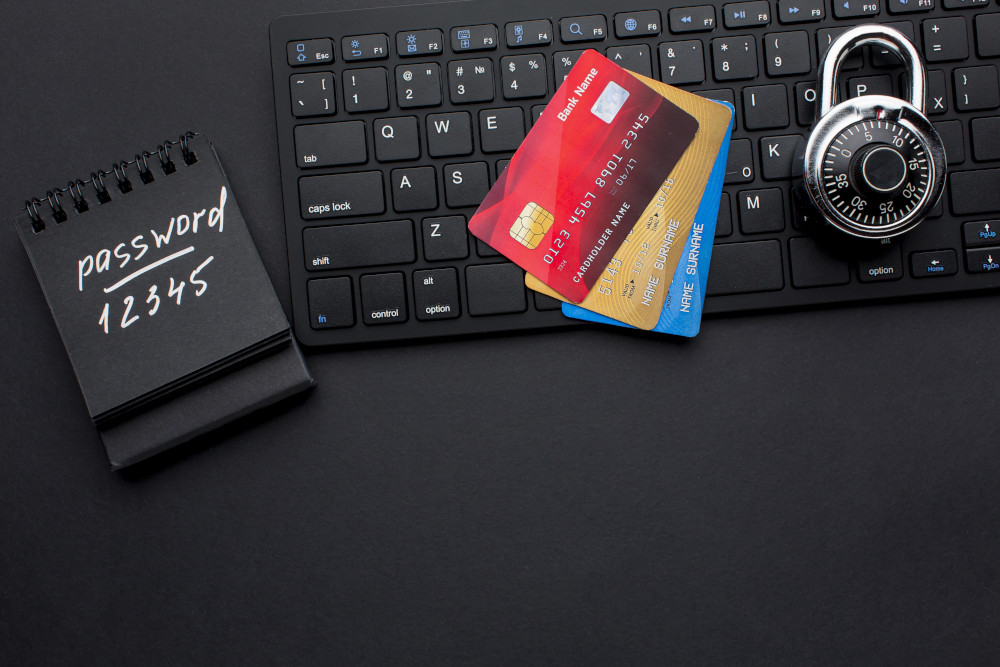PCI compliance plays an important role in maintaining the security of payment card transactions. Adhering to Payment Card Industry Data Security Standard requirements is paramount for businesses. A PCI compliance manager is tasked with understanding these requirements, assessing security risks, developing and implementing policies, conducting audits, and managing incidents. By following these guidelines, organizations can safeguard sensitive financial information and mitigate the risks associated with payment card transactions. Online transactions have become the norm, and it becomes important to ensure the security of customer payment card information. In this blog post, we will explore what PCI compliance entails and the role of a PCI compliance manager in maintaining a secure environment for payment card transactions.
What is PCI Compliance?
PCI compliance refers to the adherence to a set of regulations and security standards established by the Payment Card Industry Security Standards Council (PCI SSC). The PCI DSS is a comprehensive framework designed to protect cardholder data and prevent fraud. It applies to all organizations that handle, process, or store payment card data, regardless of their size or industry.
The primary goal of PCI compliance is to safeguard sensitive cardholder information throughout the entire payment card transaction process. By complying with the PCI DSS, businesses ensure that they are implementing the necessary security measures to protect customer data from unauthorized access, data breaches, and fraudulent activities.

The importance of PCI Compliance for businesses lies in protecting customer data and building trust. By adhering to PCI standards, businesses demonstrate their commitment to safeguarding customer information, which helps establish trust and loyalty. Non-compliance can result in significant financial penalties imposed by credit card companies. These fines can range from thousands to millions of dollars, impacting a business’s bottom line and potentially leading to bankruptcy.
Maintaining a good reputation is crucial for businesses, and PCI Compliance plays a vital role in this aspect as well. A data breach or security incident can severely damage a business’s reputation, leading to loss of customers and revenue. Prioritizing PCI Compliance allows businesses to show their dedication to security and protect their reputation in the eyes of their customers.
Non-compliance with PCI standards exposes businesses to various risks, including data breaches, legal consequences, and financial losses. Data breaches can lead to the theft of sensitive customer information, resulting in financial losses, reputation damage, and potential legal action. In some jurisdictions, non-compliance may subject businesses to legal action and substantial fines imposed by regulatory authorities. Financial losses can also occur due to the costs associated with investigating and remediating a data breach.
PCI Compliance is governed by the Payment Card Industry Data Security Standard (PCI DSS), which outlines 12 high-level requirements covering network security, access control, encryption, and vulnerability management. The level of compliance required depends on the number of credit card transactions processed annually by a business.
The Role of a PCI Compliance Manager
A PCI compliance manager plays a crucial role in overseeing and implementing the necessary measures to achieve and maintain PCI compliance within an organization. Their responsibilities include:
Understanding PCI DSS Requirements
A PCI compliance manager is responsible for thoroughly understanding the requirements outlined in the PCI DSS. They stay updated with the latest changes and ensure that the organization’s policies and procedures align with the standards set by the PCI SSC.
Assessing Security Risks
Identifying and assessing potential security risks is another vital task of a PCI compliance manager. They conduct regular risk assessments and vulnerability scans to identify any weaknesses or vulnerabilities in the organization’s systems and processes that could compromise cardholder data.
Developing and Implementing Security Policies
Based on the PCI DSS requirements and risk assessments, a compliance manager develops and implements robust security policies and procedures. These policies cover areas such as network security, access controls, encryption, physical security, and incident response.
Training and Awareness
Educating employees about the importance of PCI compliance and providing training on security best practices is essential. A compliance manager ensures that all staff members are aware of their responsibilities in maintaining a secure environment for cardholder data.
Conducting Internal Audits
Regular internal audits are conducted by a compliance manager to assess compliance levels within the organization. These audits help identify any gaps or non-compliance issues and provide an opportunity for remediation before external assessments or audits.
Coordinating External Assessments
External assessments, such as vulnerability scans and penetration tests, are often required to validate PCI compliance. A compliance manager coordinates these assessments with external auditors or Qualified Security Assessors (QSAs) to ensure thorough evaluations of the organization’s security controls.
Incident Response and Breach Management
In the unfortunate event of a security breach or incident involving cardholder data, a compliance manager plays a critical role in managing the incident response process. They coordinate with relevant stakeholders, conduct investigations, and implement remediation measures to minimize the impact of the breach.
To effectively manage third-party compliance, businesses should conduct due diligence when selecting vendors. This includes assessing their security practices, reviewing compliance documentation, and conducting regular audits. Businesses should also include specific PCI compliance requirements in contracts with vendors and maintain regular communication and oversight.
Emerging trends and technologies in PCI compliance include the use of artificial intelligence (AI) and machine learning (ML) for real-time threat detection, the increasing use of mobile payments requiring secure systems, and the impact of cloud computing on data storage. Staying informed about these trends is crucial for implementing necessary security measures.
A dedicated PCI Compliance Manager plays a critical role in overseeing all aspects of PCI compliance within an organization. They assess risks, implement security measures, conduct audits, and respond to security incidents. Employee training on security best practices is also important.
Regular audits and assessments are necessary to maintain compliance, and businesses must ensure that third-party vendors are compliant as well. By prioritizing PCI compliance, businesses can protect payment card information and maintain customer trust. Non-compliance can result in fines, legal action, and damage to a company’s reputation.

Conclusion
PCI compliance is a vital aspect of maintaining secure payment card transactions in today’s digital landscape. By adhering to the guidelines set forth by the PCI SSC and employing a dedicated PCI compliance manager, organizations can significantly reduce the risk of data breaches and protect customer trust. The role of a PCI compliance manager encompasses understanding requirements, assessing risks, developing policies, conducting audits, coordinating assessments, and managing incident response. With their expertise and vigilance, they ensure that organizations maintain a secure environment for handling payment card data.
With 25+ years of experience in the credit card processing industry and having worked with over 2,000 clients Midwest Pay experts know the ins and outs. Our 0% attrition rate versus the 18 – 20% normal attrition rate with other merchant processing companies speaks to our ability and track record to help our clients reduce their costs. Send us your monthly merchant statement for evaluation, we’ll complete a maximum 30-minute call with you and outline the savings you can expect, and after you complete the simple e-sign application, you start realizing your savings within 48 hours. Contact us today!

